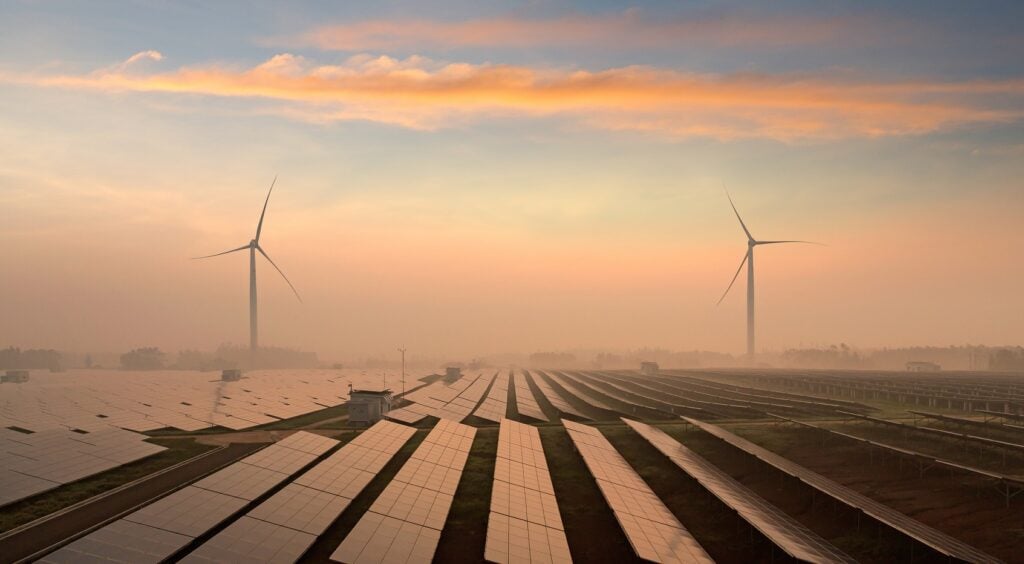Large-scale renewables are the most important factor in decarbonisation of the energy sector, according to a new UK Energy Research Centre (UKERC) report.
However, rapid, unprecedented changes across the entire UK economy will be required to meet net zero. Disruptive change, defined by UKERC as a significant deviation from past trends in a short timeframe, is inevitable but the extent and impact is uncertain, the report says.
Using data from a survey of 130 UK energy researchers and stakeholders, the report came to a series of conclusions on electricity, heat and transport.
Decarbonising the energy sector
The results yielded a mix of opinions, although most respondents agreed that the Big Six are unlikely to be completely displaced by aggregators, community energy suppliers and intermediary companies by 2040.
Large-scale renewables were seen as the single most important contributor to change in the power sector. Demand side management and response solutions, in particularly energy storage, and smart electricity networks are also expected to make important contributions to the energy transition.
Mitigating disruption in transport
In transport, the report concludes that the ‘Road to Zero’ strategy is at risk of not hitting the targets needed for a 1.5°C scenario, achieving ‘too little, too late’. But electric vehicles (EVs) are likely to be the dominant contribution towards the decarbonisation of personal transport, with respondents not coming to a consensus on how effective changes in public behaviour, such as increased cycling or public transport usage, would be.
The report suggests that the aims of Road to Zero can only be met with the inclusion of hybrid EVs in the UK’s ban of the sale of conventional vehicles by 2040. It also looked into scenarios that phased out hybrids and plug-in hybrids by 2030, which showed the largest and earliest reductions in emissions.
Jillian Anable, co-director of UKERC, said: “Whilst politically challenging, the [transport] sector can only hope to reach ‘net-zero’ through whole-scale change that involves reducing hyper-mobility and fuel switching. This will lead to disruption to actors, global networks, governance and lifestyles.”
In that scenario, any disruption caused could be managed by increase consumer awareness through marketing campaigns, increased and earlier certainty of access for fleets, higher battery capacity, charging rates and faster off-street parking from the mid-2020s.
How government can respond to changes across the economy
In areas where respondents were in agreement, for example the importance of both EVs and large-scale renewables, the report suggests there is scope for stronger government support to facilitate more ambitious targets.
In areas where respondents were more split, for example in how to decarbonise heat and the effectiveness of consumer behaviour change in transport, the report says there is a need for more evidence and the development of trials to forge a path through the uncertainties. Heat in particular was identified as needing significant policy and government intervention.
Jim Watson, director of UKERC, said: “The move to legislate for net-zero is welcome progress, but we need economy-wide action to make this a reality.
“This includes policies that deliberately disrupt established markets and business models in some sectors – and address any negative impacts.”






